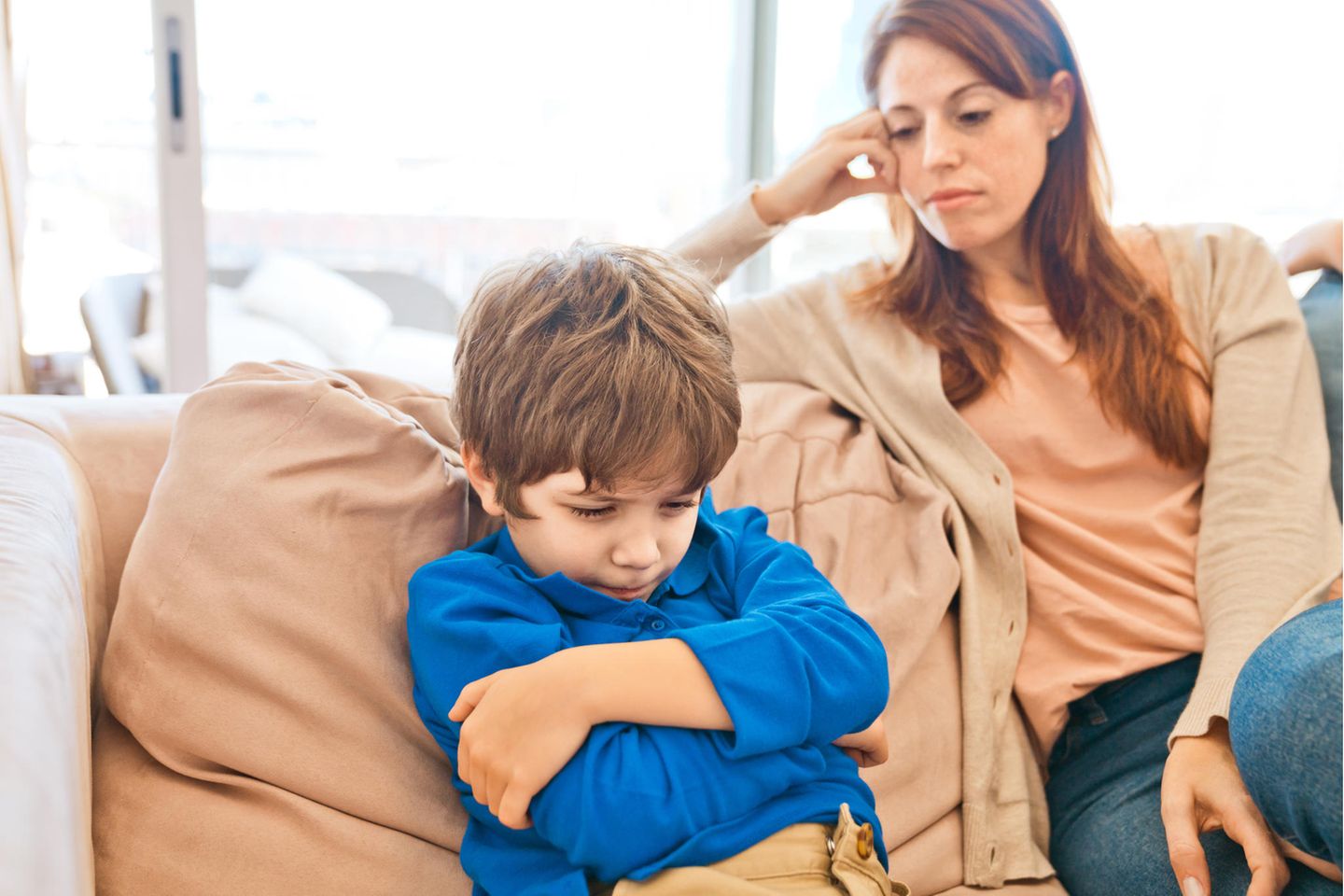When parents raise their voices
How screaming affects children’s brains

© izusek / Getty Images
Probably no one wants to scold their children, yet unfortunately sometimes it happens. Here you can find out what consequences a reprimand can have for the little ones and how to react in the event of worse.
There are days when everything is just too much. Your stress level is already high and then it happens: we yell at our child. He is human. But what many people don’t consider is that when we raise our voices and scold our children, we create psychological pressure and may cause more problems than we try to solve. What specifically does this mean for the child’s brain development and what consequences does it have?
Offensive words: when parents raise their voices
Words leave traces, as Anke Elisabeth Ballmann writes in her book “Words like arrows”, in which she shows the effects that emotional violence has on children. Childhood experiences often shape people throughout their lives. Memories, both positive and negative, make up who we become. If these have a more negative connotation and we lack love, we often find it more difficult to accept ourselves. This also makes relationships with other people more complicated. Ballmann here explicitly talks about violence when it comes to yelling at a child.
The children are not to blame
Often the words are not meant to be offensive or malicious, but rather slip away into the emotion of the situation. Find out how to best deal with the situation when stress gets to you and it all becomes a bit much Here.
It is important to be careful and close to our child, because as parents we are his closest confidants. Blaming the child for making noise has a huge impact on him and he often cannot understand why we shouted.
Emotional abuse has similar consequences to physical injury
Any form of violence hits children especially hard because their brains are still developing. Childhood experiences shape the structure of the brain because they create the brain network differently. In one He studies at Harvard Medical School Regarding brain development in children, Martin Teicher and his team were able to demonstrate that the hippocampus in adolescents and adults who have suffered violence is smaller than in people who have not suffered it. This is probably due to hormonal stress processing, because this is more susceptible to disorders in children and adolescents and is therefore easier to influence. Emotional abuse has similar consequences to physical violence. The areas of the brain responsible for fear, stress, excitement or even anticipation are activated during emotional violence in the same way as physical violence, which is why children perceive both similarly.
The implications are serious
In the worst cases, early experience of emotional abuse can lead to depression, post-traumatic stress disorder and anxiety disorders in adulthood. Those affected are often unable to manage anger themselves and therefore pass it on to their children.
By the way, scolding children ultimately doesn’t help. Children are less likely to accept requests expressed in anger because the brain is dealing with extreme fear. This creates stress, which leads to the inability to process information.
What can you do if this happens?
Naturally, an outburst of anger may occur. It is important that you apologize afterward and take responsibility for your behavior. Honestly admitting a mistake is much better than not saying it silently. Emotions cannot always be controlled. It’s just a good idea to talk about it openly and explain to your child how this could have happened. You can find more information on this topic in our article “Have you scolded your child? Then 3 things are important next”.
Sources used: Focus Online, bw24.de, book “Words like Arrows” by Anke Elisabeth Ballmann, “Development and Psychopathology” (cambridge.org), Teicher, Martin H. et al.: Harvard Medical School Study, “Screaming doesn’t help, it can harm adolescents. This is demonstrated by a study conducted by Pitt.” (news.pitt.edu)




